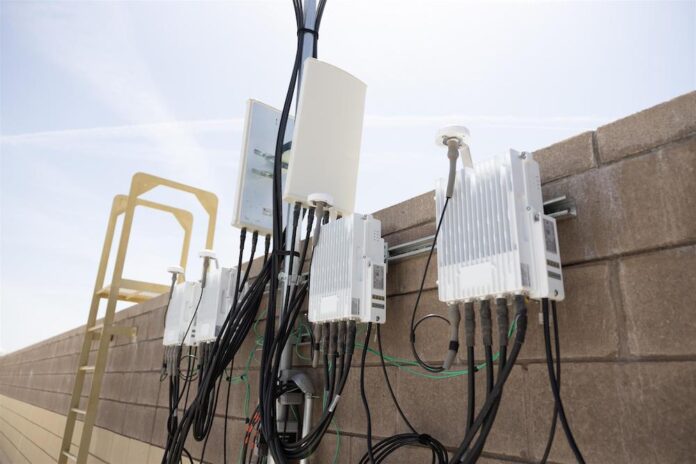Devolving power to the net workers
US equipment maker Baicells Technologies and blockchain specialist Parley Labs have created a revolutionary concept that lets end users create and resell their own 5G small cells and hot spots. By demystifying network management and rewarding those who take in administration work, they hope empower a channel of end users, communities and enterprises to popularise and spread 5G in the US.
Baicells makes 5G and LTE comms equipment (pictured) while Parley specialises in the Internet of Things. Now they have pooled their talent for simplifying the use of technology and are now working together on Decentralized Wireless Networks (DeWi). DeWis are a way of improving wireless coverage, indoors and out, to communities and enterprises. This revolution is starting in the US but its example could be repeated in Europe, the Middle East and Africa.
Baicells already works with DeWi operator FreedomFi, whose instant small cell creating gateway software turns ‘430H’ and ‘436H’ puzzles into quick and easy setups, it claims. These DeWi networks are open to anyone who buys a turnkey 5G Hotspot bundle from Baicells, Parley Labs or the DeWi operator. Advances in small cell technology have made these platforms affordable and easier to self administer. These have put cellular broadband connectivity into the hands of the end users, claims Baicells.
Now it wants to make the creation of 5G hotspots more achievable. The 5G hotspots in DeWi networks use the Citizens Broadband Radio Service (CBRS) spectrum to connect to a long list of user devices like smart phones, tablets, scanners and video cameras, to name but a few. CBRS is a uniquely American phenomenon comprising 150 MHz of spectrum (from 3.55 to 3.7 GHz) in the 3.5 GHz band (“Band 48”). CBRS is 150 MHz (from 3.55 to 3.7 GHz) of United States-only spectrum and can be used for private mobile networks. CBRS compatible network devices have been available for over three years and are detailed by the OnGo Alliance.
Once deployed and in service, the 5G Hotspot owner earns a form of currency, Mobile Tokens, for providing wireless coverage and connectivity to user devices. As more devices connect and more traffic is transported on the DeWi small cell, the owner earns more. The Mobile tokens then have value as a crypto currency from the Helium network community. The date to first start earning these mobile tokens is scheduled for July, so the timing to be an early adopter can be attractive to many.
Individuals, small businesses and communities can take control of their wireless infrastructure for the first time in history, according to Parley Labs CEO Bryan Bui-Tuong. “BaiCells and Parley Labs are putting power into the hands of those who are creating new opportunities and businesses,” said Bui-Tong, “this will [expedite] coverage in the most needed areas, meeting demand for wireless coverage and capacity.”



